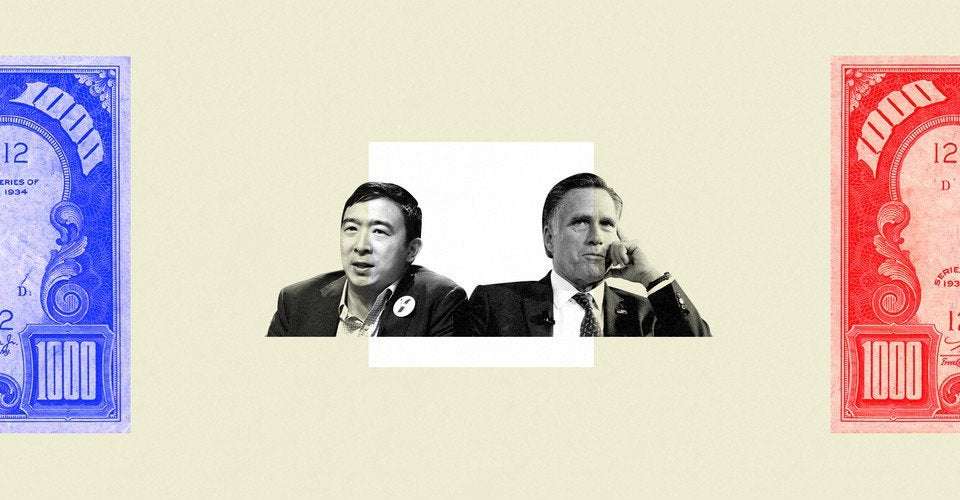Instead of talking about automation, I should have been talking about a pandemic.
Read: How Andrew Yang’s ideas could outlast the 2020 campaign
Harris: These coronavirus closures will put a lot of Americans in financially precarious situations. Does a onetime injection of money help? Or is this something that needs to be continuous?
Yang: It would be immensely helpful right now in this time of crisis. I think it should be $1,000 per month of economic lockdown. And the CDC just announced that they’re advising against gatherings of 50-plus [people] for eight weeks. So we should be looking at a minimum of two months at $1,000 per person. But we don’t know if the world’s going to reopen in eight weeks. It’s unclear what data we would have that would enable the CDC or other policy makers to give us the all clear. So it should be $1,000 a month until this crisis is over. And obviously anyone who knows anything about me knows I think it should then just continue in perpetuity.
We should do this right now to help keep millions of American families above the waterline. Seventy-eight percent of Americans are already living paycheck to paycheck; almost half can’t afford an unexpected $400 bill—and that was before we shut down hundreds of thousands of businesses, not just bars and restaurants and theaters. If you look at the ripple effect of every canceled sporting event, every canceled conference; hotels are firing people right and left right now. You’re looking at, essentially, a negation of a significant proportion of our economic activity for a month. There’s really no effective way you can try and make workers whole that does not involve putting money into everyone’s hands.
And this is one thing I find ridiculous and frustrating when politicians talk about making people whole. It’s like, how do you make a parking attendant who just lost all of his shifts whole? You know, he’s not paying a payroll tax now.
Harris: To add to that, the gig economy has always been very insecure. Does providing people with a baseline of money add some security to the system?
Yang: I’m for a universal basic income of $1,000 a month in perpetuity for all American adults. I think it’s necessary in the face of how our economy has evolved where the vast majority of new jobs that are getting created are temp, gig, or contract jobs that get disappeared any moment, are precarious, and do not have any benefits attached to them, typically.
We should have universal health care for similar reasons. The fact is our employment-based health-care system is purely an accident, based on our experience in World War II, where there were pay caps and companies bolted on health insurance trying to attract workers. And now we’re stuck with this completely messed-up hodgepodge where your insurance is tied to a full-time job that exists for fewer and fewer Americans. Because again, most of the new jobs that are getting created are gig and contract jobs. So these are massive economic and social changes that we just have adapted to in a meaningful way. And this coronavirus crisis is going to be devastating for millions of Americans—socially, economically, physically. But a lot of these vulnerabilities existed prior to the coronavirus highlighting them.

IronicEyeCancer on March 17th, 2020 at 14:37 UTC »
Tulsi Gabbard literally has a resolution in the house to pass emergency UBI.
How is no one talking about this??? But Mitt Romney says $1000 and everyone goes crazy.
Capgunkid on March 17th, 2020 at 14:08 UTC »
First time filing for unemployment will be today. So all this is pretty new. Working on my adult stats to gain more exp points.
Not fun living in the second highest hot spot state.
NotQuiteGoodEnougher on March 17th, 2020 at 13:33 UTC »
He's talking about a $1000 check to each adult, to stimulate purchasing goods. Same thing that occurred in 2001 and 2008.
One time check, not continually income. We can "afford" it as the total will be added to national debt.
The recession (if it hits) wil be far more expensive than a 1 time payment to help families survive the unexpected work outages they have begun to experience.